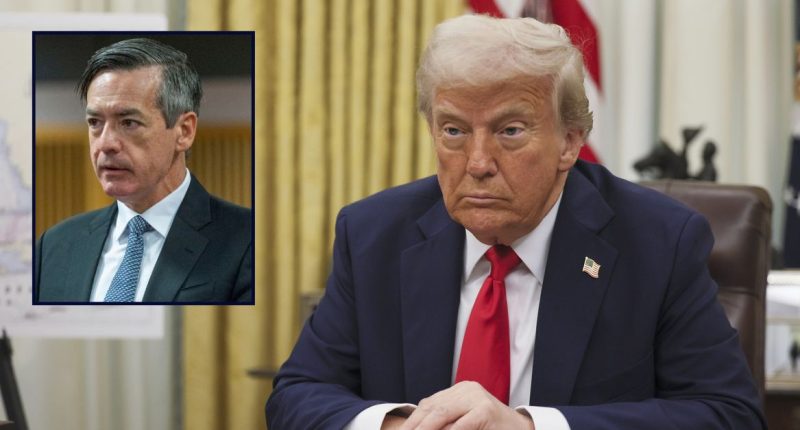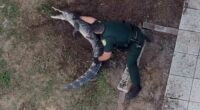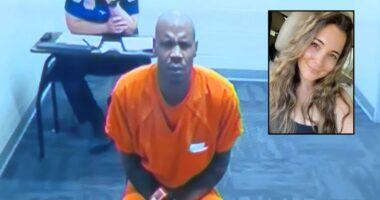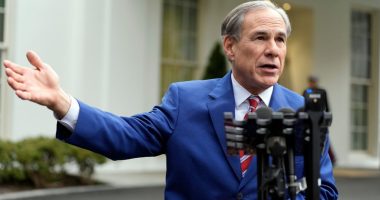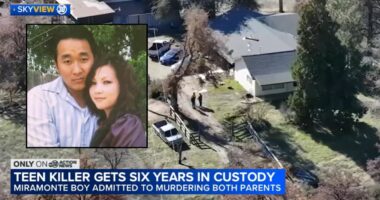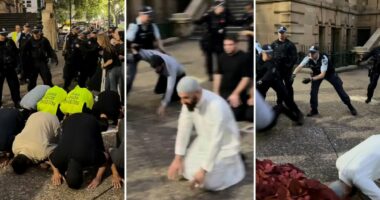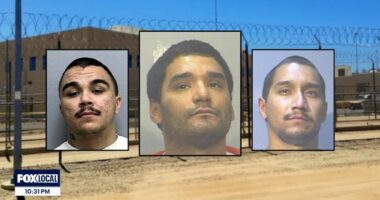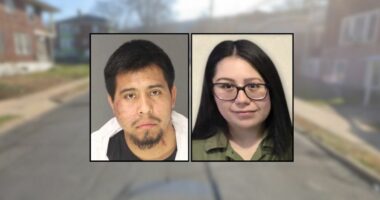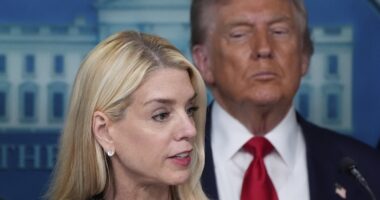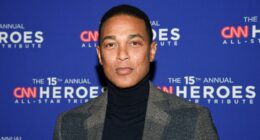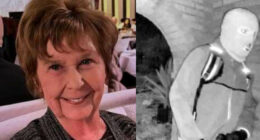Share this @internewscast.com
Inset: FILE – Kenneth Chesebro addresses Fulton County Superior Court Judge Scott McAfee during a hearing where he accepted a plea agreement from the Fulton County district attorney at the Fulton County Courthouse, Oct. 20, 2023, in Atlanta (Alyssa Pointer/Pool Photo via AP). Background: President Donald Trump responds to a reporter’s query before signing an executive order in the Oval Office of the White House in Washington, Monday, March 31, 2025 (Pool via AP).
A federal court of appeals has suspended conservative attorney Kenneth Chesebro from practicing law in Washington, D.C.
Chesebro is notably recognized as one of the architects of the so-called “coup memos” – documents providing legal opinions on methods by which President Donald Trump could contest the 2020 presidential election results in a “constitutionally defensible manner.” More specifically, Chesebro played a pivotal role in formulating the alternate — or “fake” — electors strategy.
On Wednesday, the U.S. Court of Appeals for the District of Columbia Circuit decreed “on the court’s own motion” that Chesebro “be suspended from the practice of law before this court.”
The appellate court’s succinct, one-page order indicates that its decision stems from Chesebro’s conviction in the Superior Court of Fulton County, Georgia, in October 2023. That conviction was directly linked to Chesebro’s disproven legal efforts supporting Trump.
Due to the fake electors scheme, Chesebro faced seven charges in the comprehensive indictment led by Fulton County District Attorney Fani Willis in August 2023. These charges encompassed a single alleged RICO violation, one count of conspiracy to commit impersonation of a public officer, two counts of conspiracy to commit first-degree forgery, two counts of conspiracy to commit false statements and writings, and one count of conspiracy to commit filing false documents.
On Oct. 20, 2023, shortly before his trial was scheduled, Chesebro admitted guilt to one count of conspiracy to commit filing false documents, leading to the dismissal of the other six charges by Willis. In this plea agreement, Chesebro consented to testify for the state against other defendants and was sentenced to five years of probation, 100 hours of community service, and a $5,000 fine.
Then came the knock-on effects.
In February 2024, Chesebro had his law license suspended in California – in a case which is now in the final stages. Then, in March 2024, Chesebro had his law license suspended in Massachusetts. Next, in October 2024, Chesebro had his law license suspended in New York. In November 2024, Chesebro had his law license suspended in Florida – which Chesebro is contesting before the state’s supreme court. In June, Chesebro, was disbarred by a court of appeals in the Empire State “based on his conviction of a serious crime,” again referring to his Peach State legal troubles.
Indeed, the docket for the latest suspension takes note of several of those prior suspensions – all but the Bay State discipline case.
In the order, the language tracks with the New York disbarment and refers to Chesebro having “been convicted of a serious crime.”
Wednesday’s order cites “Rule III (a) of the Rules of Disciplinary Enforcement for the United States Court of Appeals for the District of Columbia Circuit” to justify the suspension.
That rule, more or less, suggests Chesebro’s suspension has been a long time coming in the federal district.
The rule reads, in relevant part:
Upon the filing with this Court of a certified copy of a judgment of conviction demonstrating that any attorney admitted to practice before the Court has been convicted in any court of the United States, or of the District of Columbia, or of any state, territory, commonwealth or possession of the United States of a serious crime…the Clerk shall enter an order immediately suspending that attorney, regardless of the pendency of any appeal, until final disposition of a disciplinary proceeding to be commenced upon such conviction…
The appeals court also referred the disciplinary matter to its Admissions and Grievances Committee “for a recommendation to the court on the extent of the final discipline to be imposed as a result of the conduct resulting in the conviction.”
That committee will, as in several other states, be the final arbiter of Chesebro’s law license in the district.
